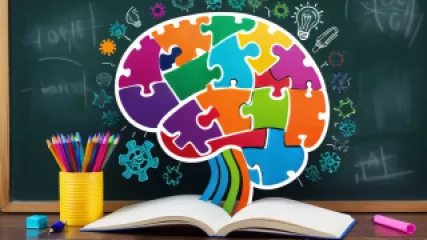Research Insights on Overcoming Fear and Anxiety
for 1 år siden
Overvinde Frygt
Step-by-Step Guide to Enhance Concentration and Improve Productivity
for 1 år siden
Forbedring af Koncentration
The Benefits of Online Life Coaching: A Research Summary
for 1 år siden
Fordele ved Livscoaching
How I Chose Between Self-Help and Professional Help for Mental Health
for 1 år siden
Selvhjælp vs Professionel Hjælp
Effective Meditation Techniques to Relieve Academic Stress
for 1 år siden
Akademisk Stress
10 Best Memory Improvement Techniques to Boost Your Brainpower
for 1 år siden
Hukommelsesforbedring
How Positive Thinking Helped Me Conquer My Deepest Fears
for 1 år siden
Overvinde Frygt
Effective Communication in Relationships: A Step-by-Step Guide
for 1 år siden
Forbedring af Relationskommunikation
My Journey to Sharper Cognitive Skills
for 1 år siden
Hukommelsesforbedring
How Does Volunteering Impact Your Mood and Self-Esteem?
for 1 år siden
Frivilligt Arbejdes Indvirkning på Humør
Cultivating Self-Awareness: A Step-by-Step Guide to Becoming a Better Leader
for 1 år siden
Lederskabets Psykologi
The Benefits of Eco-Therapy for Mental Well-Being
for 1 år siden
Økoterapi
My Life Coaching Journey: Unlocking the Benefits of Personal Transformation
for 1 år siden
Fordele ved Livscoaching
Combating Academic Stress: A Cognitive Behavioral Approach
for 1 år siden
Akademisk Stress
My Personal Journey to Better Memory Through Memory Improvement Courses
for 1 år siden
Hukommelsesforbedring















